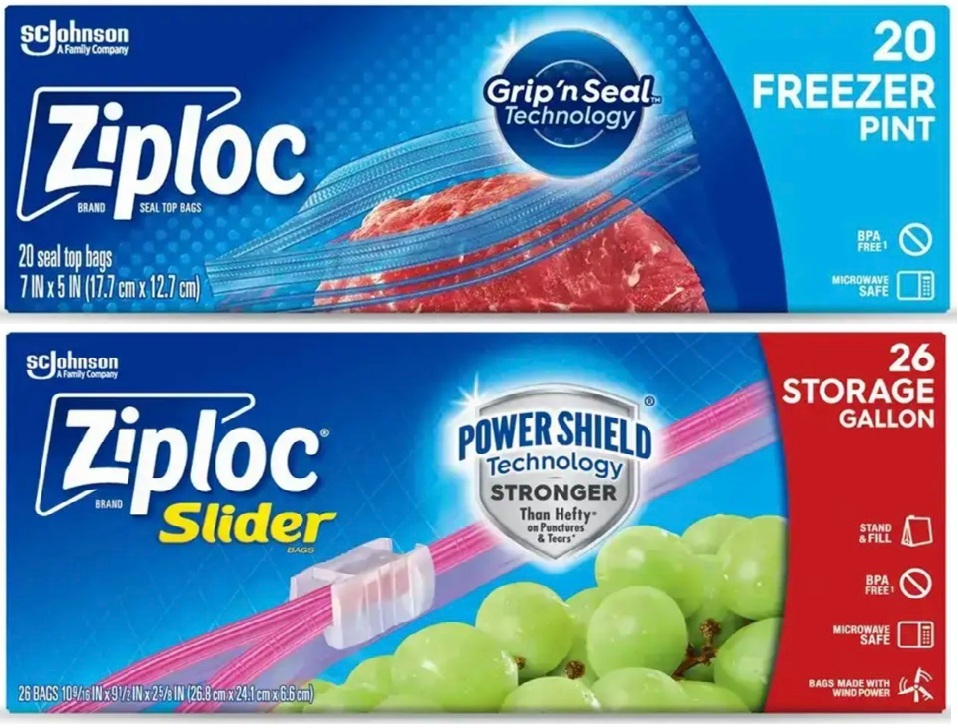Ziploc Lawsuit Claims ‘Microwave Safe’ Storage Freezer Bags, Containers Leach Microplastics into Food
Cheslow v. S.C. Johnson & Son, Inc.
Filed: April 25, 2025 ◆§ 3:25-cv-03655
A class action claims certain Ziploc storage containers and freezer bags leach microplastics into food when microwaved or frozen.
California Business and Professions Code California Unfair Competition Law California Consumers Legal Remedies Act
California
A proposed class action lawsuit claims certain Ziploc storage containers and freezer bags leach microplastics into food when microwaved or frozen, leaving consumers at risk of repeated exposure to the harmful microscopic particles.
Get the latest open class action lawsuits sent to your inbox. Sign up for ClassAction.org’s free weekly newsletter.

According to the 51-page microplastics lawsuit, the Ziploc bags and containers are marketed as “Microwave Safe” and suitable for “Freezer” use, leading reasonable consumers to believe the products are designed for safe food reheating or storage. However, the suit alleges manufacturer S.C. Johnson has failed to warn consumers that the products—made from polyethylene and polypropylene—release microplastics when microwaved or frozen as intended for ordinary use.
Per the case, the products at issue include Ziploc storage containers and bags of all sizes and variations whose packaging bears the “Microwave Safe” and/or “Freezer” representations, including, without limitation:
- Ziploc Freezer Bags Pint/Small;
- Ziploc Freezer Bags Quart/Medium;
- Ziploc Freezer Bags Gallon/Large;
- Ziploc Slider Freezer Bags Quart/Medium;
- Ziploc Slider Freezer Bags Gallon/Large;
- Ziploc Slider Storage Bags Quart/Medium;
- Ziploc Slider Storage Bags Gallon/Large; and
- Ziploc Containers.
Research shows that once microplastics are ingested, the tiny particles accumulate in the body and can harm the digestive tract, immune system and reproductive system, among other serious health risks, the Ziploc lawsuit says.
The complaint contends that despite the risk of microplastic exposure and food contamination, there is no warning, disclaimer or disclosure on product packaging to inform consumers of the potential health hazards posed by using the items as directed. This is particularly dangerous given that the Ziploc products are meant to be used on a daily basis during routine kitchen activities, the filing argues.
“Studies show that even under refrigeration or room temperature—without any external stress like microwaving—polyethylene and polypropylene products, like the Products at issue here, release thousands of microplastics and millions of nanoplastics per square centimeter of surface area,” the suit relays. “Freezing exacerbates this issue, and when combined with reheating—particularly microwaving, which has been shown to release the highest levels of microplastics—these risks are further amplified.”
Reasonable consumers would not have paid as much for the Ziploc containers and bags, or bought them at all, had they known the products could leach harmful microplastics into their food, the case asserts.
The Ziploc bag lawsuit looks to represent all United States residents who, during the applicable statute of limitations period, purchased any of the Ziploc products listed on this page for purposes other than resale.
Want to learn how to start a class action lawsuit? We’ve got you covered.
Video Game Addiction Lawsuits
If your child suffers from video game addiction — including Fortnite addiction or Roblox addiction — you may be able to take legal action. Gamers 18 to 22 may also qualify.
Learn more:Video Game Addiction Lawsuit
Depo-Provera Lawsuits
Anyone who received Depo-Provera or Depo-Provera SubQ injections and has been diagnosed with meningioma, a type of brain tumor, may be able to take legal action.
Read more: Depo-Provera Lawsuit
How Do I Join a Class Action Lawsuit?
Did you know there's usually nothing you need to do to join, sign up for, or add your name to new class action lawsuits when they're initially filed?
Read more here: How Do I Join a Class Action Lawsuit?
Stay Current
Sign Up For
Our Newsletter
New cases and investigations, settlement deadlines, and news straight to your inbox.
Before commenting, please review our comment policy.